Winner of £10,000 prize to be announced in June
The three finalists have been announced for this year’s Davidson Prize focusing on building communities for people who have experienced homelessness.
The Alan Davidson Foundation’s third annual award has asked multi-disciplinary teams to respond to the theme “somewhere to call home”.
The three finalists (see below) will each be given £5,000 to develop their ideas in the form of a visual media presentation given to the judges.
The winner will be announced in June during the London Festival of Architecture and will be awarded a £10,000 prize.
> Also read: Longlist for this year’s Davidson Prize revealed
The brief asked for innovative design solutions for a home community where people who have experienced the trauma of homelessness and housing insecurity are given time to settle, recover and find their bearings.
Entries explored the impact of homelessness on demographics including single parents, neurodivergent people, asylum seekers, care leavers and domestic abuse survivors.
The 2023Finalists:
- More Not Less - Re-Group: ZCD Architects with Madeleine Kessler Architecture and Datshiane Navanayagam, Architecture Doing Place, JCLA, Webb Yates Engineers,Charles Jegar. With the aim of improving standards of temporary homeless accommodation, More Not Less focuses on Design Codes, testing its principles on a site in Hackney, London. The team has lived experience of hidden and childhood homelessness, with expertise across policy, architecture, landscape, play, engineering, trauma counselling and broadcast journalism.
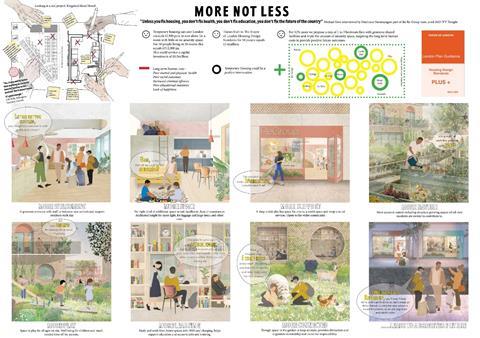
- Helping Hands - Studio Mutt and Neighbourhood with The Independence Initiative, Hugh Baird College, Islington Hostel Outreach, Amber Akaunu, Peter O’Neil, Dead Good Poets Society. With a focus on the needs of care leavers, Helping Hands is a proposal for a nurturing communal landscape in Liverpool co-created by residents, neighbours and specialist support organisations. The team includes designers with experience of transitioning from care, experts offering homeless support and housing, medical professionals practising in homeless hostels, a local college, poet and filmmaker.
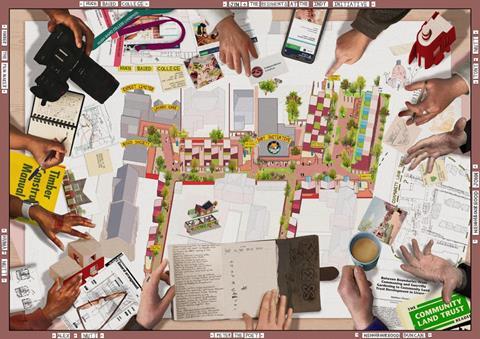
- Home Building - Wild & SNaB. This proposal harnesses learning, collaboration and sustainable construction to create homes and a sense of belonging. Focusing on typical ‘left over’ sites bordering agricultural land, Home Building is a 12-month design and construction course where homeless people including ex-prisoners learn the skills to build homes. The team combines an architect with a wide range of skills at The School of Natural Building (SNaB)
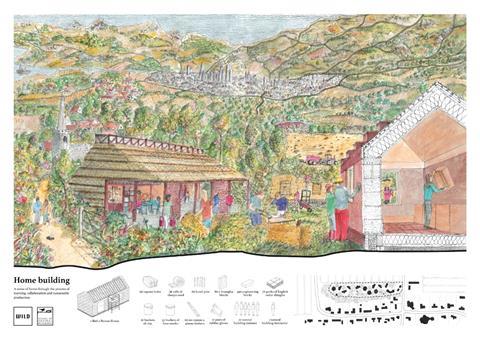
The judges said three finalist projects used diverse and innovative approaches to tackling contemporary homelessness through design but share a common ground of multi-disciplinary problem solving, strong narratives and compelling communication.
The jury panel was chaired by dRMM co-founder Sadie Morgan and included Charles Holland, principal of Charles Holland Architects and winner of last year’s Davidson Prize.
Also on the panel was Enfield council senior development manager Yemí Aládérun, Shelter director of policy Osama Bhutta and Design Museum head of curatorial Priya Khanchandani.
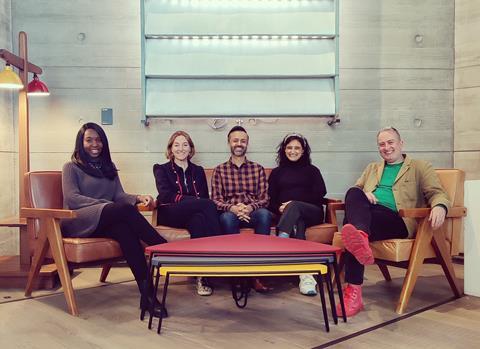
Holland said: “This is a terrifically strong shortlist with proposals addressing a wide range of issues around homelessness, geographic and cultural contexts and ways that architecture can help to address them.
“The teams also include people from many different disciplines, recognising that responses need to address policy, care and economics as much as architecture.”
Aládérun added: “It wasn’t easy getting down to just three finalists but the projects chosen excited and inspired us in equal measure.
“The ideas were strongly communicated and boldly addressed current social and political contexts. We were left wanting more and are looking forward to seeing these proposals developed further.”
Charles Holland Architects’ winning 2022 proposal, created in conjunction with the Quality of Life Foundation, Verity-Jane Keefe, and Joseph Zeal-Henry, sought to reinvigorate rural communities with a new type of shared communal housing focused on wellbeing.
The inaugural 2021 trophy, themed around future ways of working, was awarded to a multidisciplinary team led by Haptic Architects.
Postscript



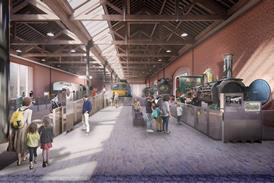
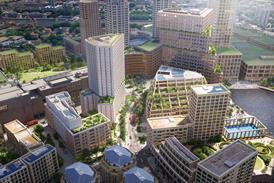
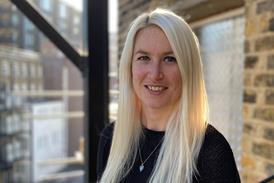










No comments yet